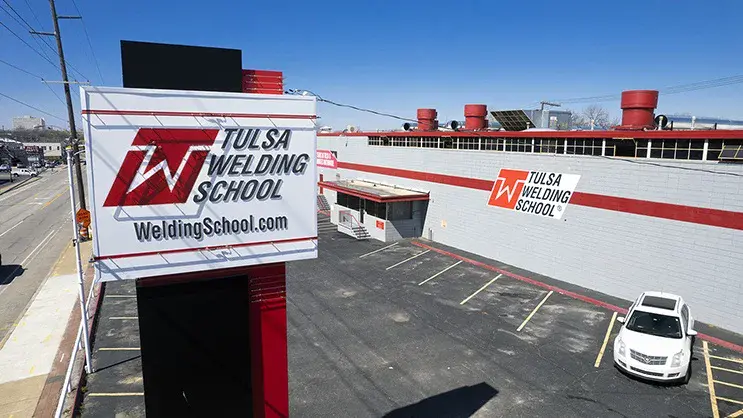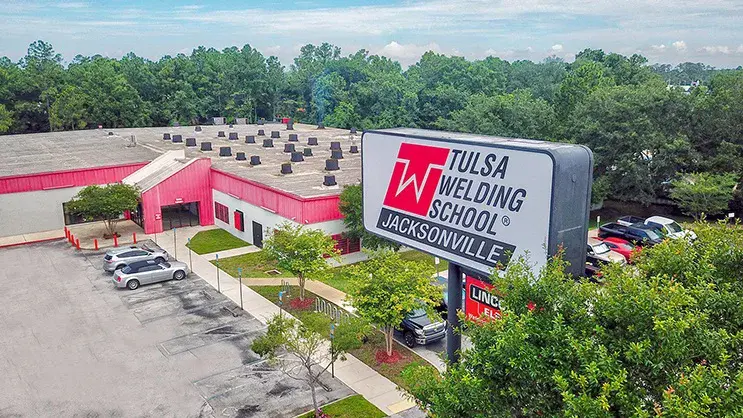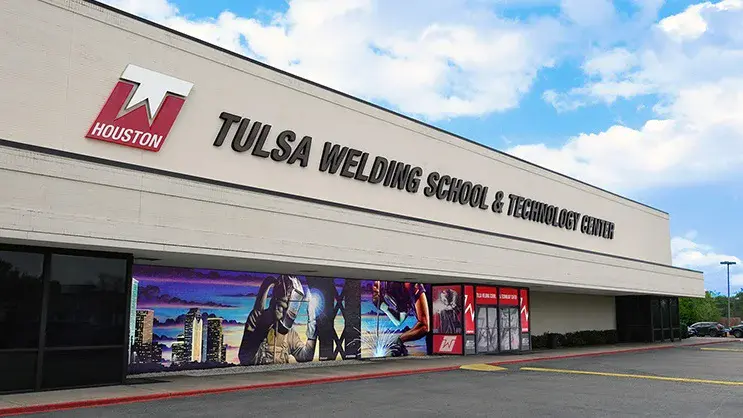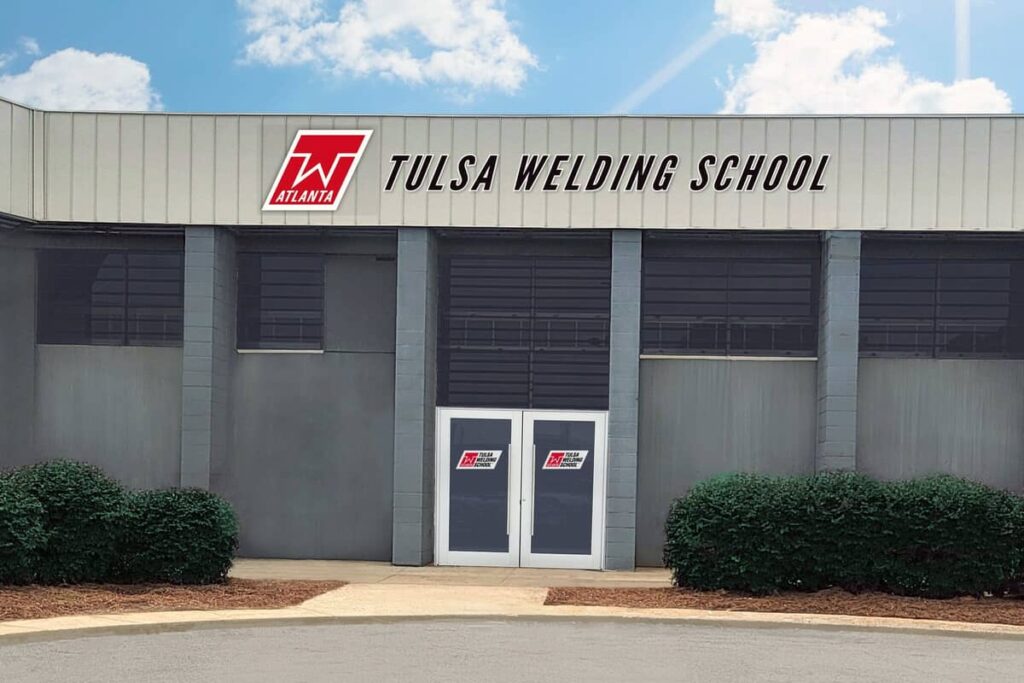TWS is a Great Training Option for Everyone
Learn more about how we can prepare you to advance your career.
Industrial maintenance technicians keep the machines that power manufacturing, energy, and logistics running safely and reliably. They repair motors, troubleshoot control systems, and fix mechanical breakdowns that could stop production lines or delay shipping. If you’re looking for a career where you work with your hands, learn practical skills, and solve real-world problems, industrial maintenance offers that opportunity.
Tulsa Welding School’s Advanced Industrial Maintenance Technology program is built for students who want a direct path into this kind of work. In as little as seven months, you can train for entry-level technician roles and begin building experience in a trade that keeps industry moving.
What Is Industrial Maintenance Technician Training?
Industrial maintenance technician training prepares students to repair, maintain, and troubleshoot the systems used in factories, warehouses, and other industrial settings. These systems include everything from conveyor belts and hydraulic lifts to motors, circuit panels, and air compressors.
The Advanced Industrial Maintenance Technology program at Tulsa Welding School is structured to give students a working knowledge of both mechanical and electrical systems. Students begin by learning the fundamentals of electricity, safety practices, and tool usage. From there, the training expands into more complex systems like motor controls, hydraulic circuits, and programmable logic controllers (PLCs).
Have You Considered a Career in the Skilled Trades?
Fill out the form to recieve a no obligation info packet.
This training is designed for people who learn best by doing. Lectures are paired with lab sessions, where students work with real tools and equipment. You won’t just read about a relay switch—you’ll wire one, test it, and learn how to replace it if something goes wrong.
What You’ll Learn in a Maintenance Technician Program
Tulsa Welding School’s Advanced Industrial Maintenance Technology program covers a broad range of subjects to help you prepare for the tasks industrial technicians face every day. Here’s a breakdown of what you’ll study:
- Electrical Systems: Learn how to safely measure voltage, current, and resistance. Gain experience wiring panels, installing switches, and reading electrical diagrams.
- Mechanical Components: Understand how mechanical systems function. Practice maintaining belts, chains, gears, and rotating machinery. Learn about alignment, tensioning, and replacement of worn parts.
- Motors and Controls: Study the operation of electric motors and how to connect them to control systems. Training includes start/stop circuits, sensors, relays, and overload protection.
- Hydraulics and Pneumatics: Learn the principles behind fluid-powered systems. Understand how to identify leaks, inspect hoses and fittings, and maintain pressure in hydraulic and pneumatic lines.
- HVAC and Refrigeration Basics: Get introduced to airflow systems, refrigerant cycles, and the tools used in HVAC maintenance.
- Safety Practices: Follow industry safety guidelines, including lockout/tagout procedures and use of personal protective equipment. Understand how to identify hazards and prevent accidents in the workplace.
- Diagnostics and Troubleshooting: Use diagnostic tools like multimeters, infrared thermometers, and pressure gauges to find and fix problems efficiently.
Every subject in the Advanced Industrial Maintenance Technology program is connected to real maintenance tasks. This makes it easier to understand how the training applies to the job and helps students build skills with purpose.
Hands-On Training That Prepares You for the Field
Classroom theory is only part of the training. What sets the program apart is the amount of hands-on practice students receive. Lab work is built into the curriculum from day one.
In these sessions, students apply what they’ve learned under the guidance of experienced instructors. Whether you’re installing a motor starter, aligning a shaft, or checking voltage in a live panel (safely, of course), the goal is to build real skills—not just textbook knowledge.
TWS instructors are professionals with experience in the trades. They bring a working knowledge of the tools, techniques, and expectations you’ll encounter on job sites. You’ll learn how to use those tools safely, how to stay productive under pressure, and how to identify the kinds of problems that keep industrial equipment from running correctly.
This focus on practical learning helps students feel confident when it’s time to enter the workforce.
Do You Need an Industrial Maintenance Certification?
Certification is not always required to start working in industrial maintenance, but it can make a difference. Some employers prefer or require certifications in safety practices or equipment operation.
The Advanced Industrial Maintenance Technology program includes OSHA 10 training, which is a recognized safety credential in many industries. Students also gain the knowledge needed to pursue additional credentials depending on the path they want to take—whether in electrical systems, HVAC, or machine maintenance.
Having certification shows employers that you’ve completed formal training and understand safe work practices. It can be a helpful step toward qualifying for better job opportunities or advancing your career over time.
Your Path to a Skilled Career Starts with TWS
Graduates of the program are prepared to work in roles such as:
- Industrial Machinery Mechanic
- Maintenance Technician
- Electrical Technician
- Facilities Maintenance Worker
- Field Service Technician
These jobs exist in factories, warehouses, hospitals, airports, and other locations that rely on mechanical and electrical systems. Demand for maintenance technicians remains steady across many sectors, especially as facilities expand and older workers retire.¹
Tulsa Welding School supports its students beyond graduation. Career services staff help with resume writing, interview preparation, and job leads. With multiple campuses and flexible class schedules, students can find a path that works for them.
If you’re ready to learn a trade and build skills that are in demand, Tulsa Welding School’s Advanced Industrial Maintenance Technology program can help you get started.
To learn more about our trade school programs, contact us at Tulsa Welding School or call (855) 981-7313
- Employment is expected to grow for Industrial Machinery Mechanics (499041) in the U.S. from 429500 to 503300 jobs through 2033 in OK from 4740 to 5510 jobs through 2032 in TX from 43080 to 54580 jobs through 2032 in FL from 16090 to 19800 jobs through 2032 in GA from 12880 to 16220 jobs through 2032 . https://www.careeronestop.org – sponsored by the Department of Labor, www.bls.gov, reported as of May 2024. Data pulled April 2025. Visit https://www.tws.edu/oes for specific details and data backups.








